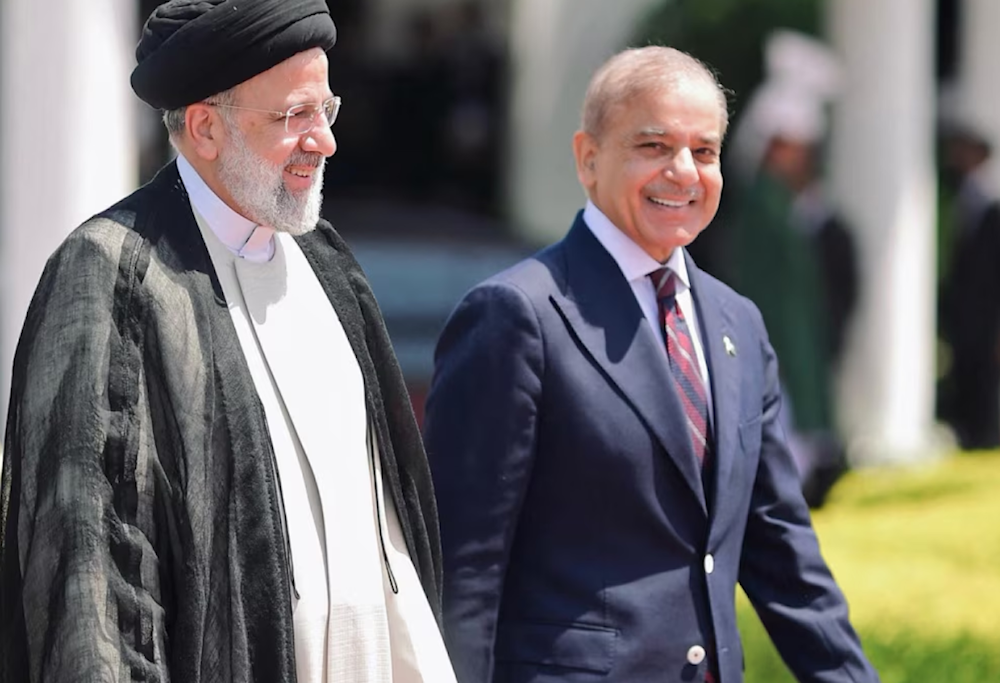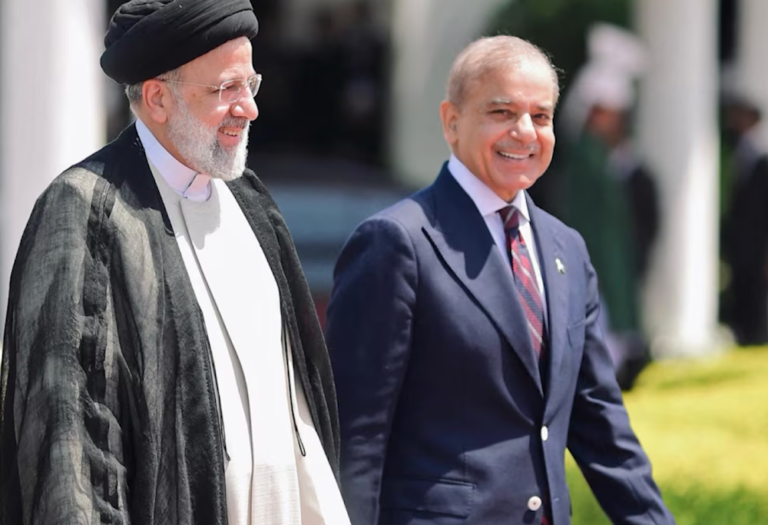The United States maintains a policy of maximum pressure sanctions against Iran and its friends and allies as punishment for cooperation.
-

Iranian President Ebrahim Raisi walks with Pakistani Prime Minister Shehbaz Sharif to inspect the honor guard in Islamabad on April 22, 2024.AFP)
The United States has warned Pakistan of the risk of sanctions after the Islamabad government signed security and trade agreements with Iran during President Ebrahim Raisi’s visit to Pakistan.
U.S. State Department spokesman Vedant Patel told reporters on Tuesday that while Pakistan has “a voice in pursuing its own foreign policy,” the U.S. “has no right to engage with anyone considering doing business with Iran.” “We advise them to be aware of the potential risks of sanctions.”
The United States maintains a policy of maximum pressure sanctions against Iran and its friends and allies as punishment for cooperation.
The US government last week imposed restrictions on Pakistan’s ballistic missile suppliers, including four companies from China and Belarus. Regarding penalties, Patel said the US would continue to “disrupt” proliferation networks and weapons of mass destruction and take action.
Pakistan is restarting plans to build a gas pipeline from Iran that has been delayed for decades due to the threat of U.S. sanctions. Asked about the Pakistan-Iran pipeline during a Congressional hearing last month, Assistant Secretary of State Donald Lew said the Biden administration would respect all Iran-related sanctions.
Meanwhile, Raisi said in a press conference on Monday that Pakistan and Iran need to increase bilateral trade to $10 billion within the next three to four years.
Shaista Tabassum, a professor at the University of Karachi, said the United States “would never” like the two countries to have friendly relations.
Raisi arrived in Islamabad on Monday morning and held a joint press conference with Pakistani Prime Minister Shehbaz Sharif after meeting with Pakistani officials.
Raisi reiterated that the two neighboring countries will strengthen bilateral economic relations. After praising the Pakistani government, Raisi said relations with Pakistan would be strengthened “in all areas: economic, political and cultural.”
The two countries also signed eight cooperation documents, memorandums of agreement and memorandum of understanding, which were celebrated at a ceremony in the presence of Mr. Raisi and the visiting delegation.
Iran, Pakistan condemn Israel’s ‘atrocities’ in Gaza, call for ceasefire
Raisi and Sharif strongly condemned the ongoing Israeli invasion of Gaza, which has left more than 34,000 Palestinian martyrs and more than 70,000 injured, and which has continued for more than 200 days. ” was announced.
In a joint statement during Raisi’s visit to the neighboring country, the two leaders called out the Israeli occupation’s “atrocities against the Palestinian people and the inhumane blockade of Gaza that has resulted in widespread death and destruction and the displacement of millions of Palestinians.” criticized.
They called for an immediate and unconditional ceasefire in the Gaza Strip, “unimpeded humanitarian access” to the besieged Gaza population, the return of displaced Palestinians, and “ensuring accountability for the crimes committed by the occupation.” Ta.
The statement also reiterated that both countries support “a just, comprehensive and durable solution based on the aspirations of the Palestinian people.”
In February, Iran vowed to engage any forces that undermine its national security and launched attacks against separatist groups inside Pakistani territory. Tensions between the neighbors were limited after Islamabad declared the attack a violation of its sovereignty. Shortly after, the same separatist group based in Iranian territory became a target of Pakistan. The two countries then agreed to coordinate and cooperate to end mutual threats.

